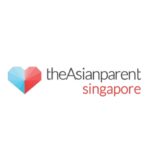
When my son was born in 2013, I had to source for a caregiver to look after him in the day. Being a helpless baby with no capabilities of expressing his feelings other than crying, I deemed it to be one of the most important decisions I had to make during his babyhood. I felt responsible to ensure that his well-being was taken care of, as he would be left alone with his caregiver in the day. Kinda stressful, to be frank.
We don't have a maid and are not looking to hire one in the near future. As for grandparents, that's not an option for us, either. This leaves us with either placing him in infant/day care (IFC) or getting a nanny. So, here’s a rundown of our considerations for your reference.
Caregiver-to-Baby Ratio
I'm assuming 1:1 for the nanny here. ECDA guidelines in Singapore is 1:5 though most IFCs set an internal limit of 1:3. Frankly, based on my observation, 1:3 is really the max that one can go as looking after a baby can be really really demanding. Over here, it may seem like having a nanny is the clear winner. But, once again I'm assuming the nanny only looks after one baby. The nanny can in fact be occupied with things other than babies, such as household chores, looking after the elderly, and cooking. As for IFC, it's a full time job in a work environment for the teachers, whose sole responsibilities are to look after the babies in their care.
Cost
I recalled nanny rates were around $600 back in 2014 and our nearby IFC cost $600 after subsidy as well. Oh yes, Singapore working mothers enjoy subsidies amounting to $600 and $300 for IFC and child care, respectively. It however very much depends on the IFC as fees can range widely between $500 to even $2,000 for the high-end IFCs after subsidy. You can refer to the ECDA website for a list of IFCs available.
Time Flexibility
OK, nanny is the clear winner here. IFCs typically operate from 7 a.m. to 7 p.m. and impose a penalty charge for late pickup. For my son’s IFC, there's a grace period of 5 minutes, after which parents are charged $1 per minute. This means, if you arrive at 7.15 p.m. which is 15 minutes past cutoff time, you'll be fined $10! No kidding! It's probably to ward against parents who are often fashionably late and these penalty charges go straight to the teachers as overtime pay. I personally think it's a fair system.
Food
Assuming the baby is still on breast milk, IFCs have a fridge (sometimes a dedicated fridge for breast milk) and teachers will heat it up when it's milk time. The nanny will, however, likely store it in her fridge along with her chocolates, vegetables, seafood, meat, etc.
When your baby is ready for solids, a nanny may charge an additional rate of $50-$100 due to the extra effort required for food preparation. The cost of food ingredients is likely to be borne by you as well. The good thing is you have a say in your baby's menu and get to personally select the food ingredients.
As for IFC, everything is already included in a standardized menu. Do note that pork will not be served at certified halal IFCs, too. Also, they may be extremely strict about hygiene and hence may not allow home-prepared stuff, such as fruit or vegetable puree.
Environment
Nanny babies are brought up in a home environment. While they're more mobile, but in the absence of a playpen, they may be confined to either rocker or baby cot to ensure their safety.
As mentioned earlier, nannies look after the baby while running their own household (chores, cooking, looking after elderly). Given that nannies have their personal commitments at home, iPads and TVs are a convenient "alternative" babysitters as they keep the baby still for long periods of time.
IFC conversely is a baby-friendly environment. Apart from sleeping in the cot, they're brought to the open area to sit either into the rocker or jumper, or for the more mobile, crawl around on playmats. Leaving them in the baby cot runs the risk of disturbing other sleeping babies, which is a big no-no.
Learning
In a home care environment, the baby is exposed to the nanny and other people at home. He learns through interaction with the nanny or iPad/TV. Depending on his personality, he may be more afraid of strangers due to less exposure to outsiders.
In the IFC, babies interact with fellow babies especially as they get more and more mobile.
Moreover, the IFC comprises of a group of teachers and staff, as well as visited by parents when they send or pick up their kids. IFC babies are constantly exposed to outsiders. Through these interactions, they typically pick up things faster and are more advanced in social skills.
IFC also has a more structured environment which has mat play, craft work, songs, etc. I personally believe it's a more enjoyable and stimulating environment for the baby.
Oversight
The nanny is not governed by any regulatory authority and is not monitored by anyone other than her own family members, and to an extent her neighbors. Unless she's a trusted nanny you know personally and comfortable with, you really do not know what she does behind your back.
IFC is an institutionalized environment with a business license. They have a reputation to keep. Besides, there's a team of teachers and staff, which means your baby is constantly under several pairs of watchful eyes. It's harder to "abuse" your child under such a setup.
Caregiving Practices
As mentioned above, nannies are likely to bring up our babies the way we were brought up by our parents.
IFCs teachers undergo training and look after kids the modern way. They also act as educators and thus are required to speak to babies in proper English and Chinese. As such, they are not allowed to engage in baby talk.
Sickness
Now, to me that's the biggest con for IFC babies. To me, IFC babies fall sick more easily than babies under home care. That can be really heartbreaking, to know that your little one is sick and yet there's no medication except to relieve symptoms for him given the tender age. Moreover, feverish babies are not allowed to be in the center. So, you'll be called over to pick up your child if he's down with a fever and seek alternative care options.
Impact on Parents' Work
The call that one dreads to receive is that from the IFC. As chances of it bearing negative news is definitely higher than positive news. It's likely because your child is down with fever, severe diarrhea, and is required to be brought home or to the pediatrician. Falling sick is a common affair for young children as they are still building up their immune system.
Conclusion
In conclusion, there's no clear winner between IFC and nanny. It very much depends on your priorities given the considerations. In case you're interested, I chose IFC.
This article was republished with permission from theAsianParent.
theAsianparent is a publication under Tickled Media Pte Ltd. Started in September 2009, it is the largest parenting website in Southeast Asia, targeted at urban parents and parents-to-be who live in Asia or are of Asian heritage. theAsianparent speaks to every stage and priority of an Asian mom’s journey – from pre-conception to pregnancy, to breastfeeding, and even how to raise smart, strong and kind children.




